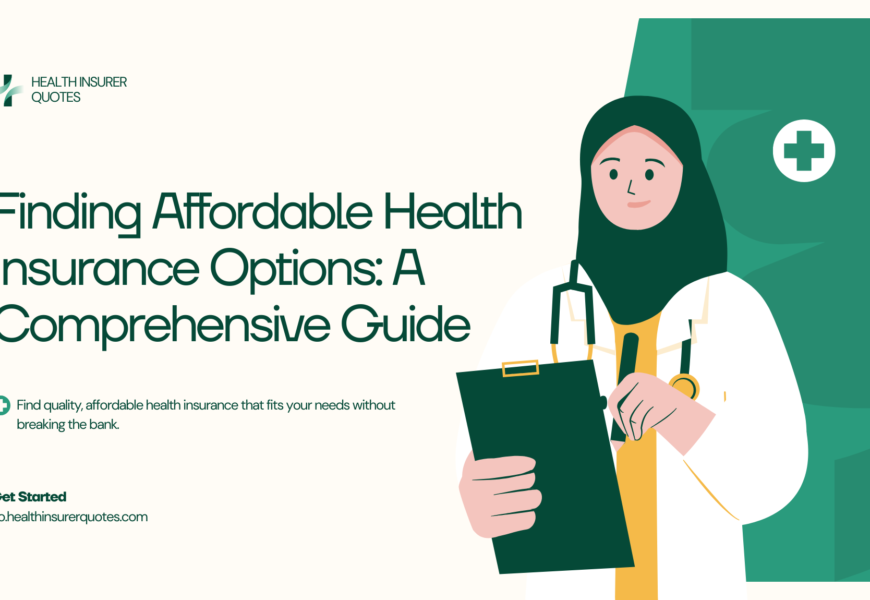Health insurance is an essential investment in your well-being, but finding an affordable plan that meets your needs can be challenging. With rising healthcare costs, it is crucial to explore different options to secure quality coverage without breaking the bank. This guide provides insights into various affordable health insurance options, helping you make an informed decision.
1. Understand Your Insurance Needs
Before choosing a health insurance plan, evaluate your healthcare requirements. Consider factors such as age, existing medical conditions, anticipated medical expenses, and whether you need coverage for dependents.
2. Explore Government-Sponsored Programs
Many countries offer government-funded health insurance programs to provide affordable coverage:
- Medicaid (U.S.): Designed for low-income individuals and families.
- Medicare (U.S.): Available for seniors aged 65 and older, as well as certain disabled individuals.
- Affordable Care Act (ACA) Plans (U.S.): Provides marketplace options with subsidies based on income.
- National Health Service (NHS) (UK): Provides free healthcare services.
3. Employer-Sponsored Health Insurance
If you are employed, check if your company offers health insurance. Many employers provide group health plans at a lower cost than individual policies. These plans often include coverage for medical visits, prescriptions, and preventive care.
4. Compare Private Health Insurance Plans
Private insurers offer various plans with different levels of coverage. When comparing options:
- Check the monthly premiums, deductibles, and out-of-pocket costs.
- Review coverage for doctor visits, hospitalization, prescription drugs, and preventive care.
- Consider Health Maintenance Organization (HMO) vs. Preferred Provider Organization (PPO) plans based on your preferred healthcare providers.
5. Look for Short-Term Health Insurance
Short-term health insurance can be a cost-effective solution if you need temporary coverage. These plans offer lower premiums but may not cover pre-existing conditions or comprehensive healthcare needs.
6. Consider Health Savings Accounts (HSA) or Flexible Spending Accounts (FSA)
If you have a high-deductible health plan (HDHP), an HSA allows you to save money tax-free for medical expenses. FSAs, offered through employers, also provide tax benefits for healthcare costs.
7. Check for Discounts and Subsidies
Many insurance providers offer discounts based on income level, lifestyle choices (such as non-smoking), and preventive care participation. Government subsidies may also reduce premium costs if you qualify.
8. Join Professional or Community Groups
Certain associations, unions, or community organizations offer group health insurance plans at reduced rates. Research industry-specific or local group plans that might provide affordable options.
9. Leverage Telemedicine and Preventive Care
Many insurers provide telemedicine services, allowing virtual doctor consultations at lower costs. Using preventive care services, such as vaccinations and screenings, can reduce long-term healthcare expenses.
10. Consult an Insurance Broker or Marketplace
An insurance broker or online health insurance marketplace can help you compare plans and find the best affordable option for your needs. These professionals have expertise in navigating policies and ensuring you receive maximum benefits within your budget.
Final Thoughts
Finding affordable health insurance requires careful research and comparison of available options. By evaluating your healthcare needs, exploring government programs, leveraging employer benefits, and comparing private insurance plans, you can secure quality coverage at an affordable cost. Take advantage of subsidies, discounts, and community group plans to maximize savings while ensuring comprehensive protection for yourself and your family.










